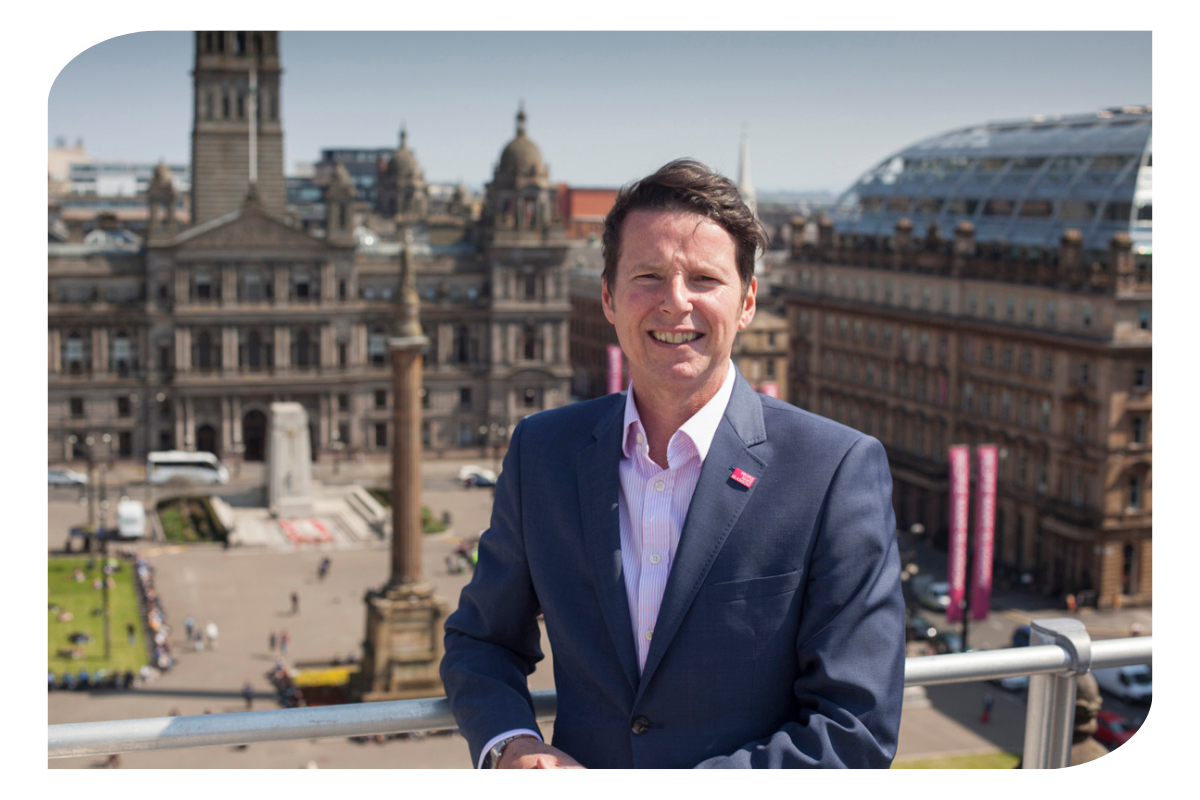
03 Aug 2022
By Richard Muir, Deputy Chief Executive of Glasgow Chamber of Commerce
Unsurprisingly, many of our members are expressing their concerns around the cost of doing business at the moment, and they are looking for practical actions and solutions to ease their challenges.
Only last week we were told that business confidence in Scotland had fallen 11 points during July to 16%, according to the latest Business Barometer from Bank of Scotland Commercial Banking. Companies in Scotland reported lower confidence in their own business prospects month-on-month and a net balance of only 5% of businesses in Scotland expect to increase staff levels over the next year, down 11 points on last month.
Additionally, according to the most recent quarterly business survey by Scottish Chambers of Commerce, in response to rising cost pressures, a record 77% firms of businesses said that they expect to raise their prices over the next three months as they face rising operating costs. This is likely to deepen inflationary challenges and further increase the cost-of-living.
One of the major challenges faced by businesses of recent has been talent recruitment and retention and four out of five firms expressed difficulty to recruit the people they need to succeed and grow. Aside from a long-term plan to solve skills shortages, government can do more to help firms fill their gaps in the short term, including an urgent review of the Shortage Occupation List.
In early 2021, Glasgow Chamber of Commerce launched a programme exclusively for Glasgow’s young people and businesses called Step Up Glasgow. The initiative, delivered in partnership with Glasgow City Council as part of the Young Person’s Guarantee, helps young people and businesses by offering incentives to employers to create job opportunities for 16–24-year-olds with 100% of the wages funded.
This programme was created to support young people who left education with no positive destination and who were economically inactive; those who were not in education, training, or employment and unable to access the UK Government’s Kickstart initiative. It focused mainly on school leavers and made a clear contribution to the increase in young people leaving to positive destinations, supporting the city’s record achievement of 96.2%, the best ever result and for the first time, higher than the national average.
Glasgow Chamber put the call to action out to businesses to get involved and were inundated with companies and third sector organisations who wanted to support the initiative. Working closely with referral agents around the city who deal directly with supporting young people into employment, Step Up Glasgow was designed to ensure that young people had the best opportunity to apply and succeed at securing a work placement with an organisation. Each young person was provided with support to apply and then prepare for being interviewed.
The programme has been a big success and a lifeline for many young people but it also helped the participating businesses with fully funded roles, creating a pipeline for future employment. The Step-Up programme helped over 90 young people into paid work placements in the past year and has been a great experience for both the employer and the young person. Glasgow Science Centre, for instance, supported one young man’s first experience of employment and helped progress his skills development, so much so that it led to him securing a permanent position with the company. Another young woman with who had never worked before secured a full time job in the Scottish Events Campus.
Step Up is just one example of how the Chamber and its partners can devise innovative solutions to not only help develop the potential of young people but address some of the key issues which are affecting our vital businesses in these challenging times. As a difficult Winter approaches for many of our businesses, we need to engage, collaborate and innovate more than ever and work with partners in governments to create real practical initiatives and solutions which benefit the economy and society as a whole.
This article was first published in The Herald on Wednesday 3 August 2022